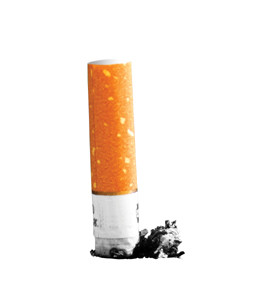
Research in the USA has found a link between smoking and panic attacks, that smokers experience more panic attacks than non-smokers. Naomi Breslau, PhD and Donald F Klein, MD of the New York State Psychiatric Institute, studied thousands of smokers. The Smokers were three times more likely to experience a panic attack than a non-smoker.1
There were several factors cited as possibly being responsible for this. Nicotine is a stimulant like caffeine, and the carbon monoxide could cause the body to panic into believing that it’s suffocating. I have found this with some people who came to see me over the years. After they experience a panic attack while driving, their breathing difficulties generally could be the primary reason behind the initial panic. Because they were driving while it happened, the brain associates it with driving, not smoking.
So, if you smoke, it may be best to think about giving up before you work on your confidence-building.
Smoking effects on mental health
Unfortunately, smoking tobacco also affects our mental health in the long run. It’s a complicated subject, but briefly explained it goes like this. Smoke fills the lungs. It affects blood and circulation. Your blood pressure goes up. Your body experiences the effects of inflammation over time, which can lead to depression. The perceived withdrawal makes a person feel anxious. The habit-forming part of the brain encourages you to do it again to get the Dopamine hit, and you wrongly understand that it’s better. So over time it severely damages your body at a cellular level, and this puts a strain on everything else. Research has found that when someone gives up, their mood improves. It might not be immediate, but it should happen between a week to three weeks.2
The reasons for starting smoking usually fall into two categories. The first is to fit in with friends at school; having seen both my grandfathers die rather horrible deaths through smoking, I never took up the habit. The other reason people often report starting is because of a stressful job. Often the ciggy break is a way of escaping the stress and socialising with one’s colleagues. But you don’t have to smoke to enjoy socialising with colleagues. Just have a cup of tea or coffee with them instead and avoid breathing in any second-hand smoke.
If shallow breathing sends us into a panic, then doing the opposite, unsurprisingly, sends us the other way. For millennia, yogis and those who meditate have understood the importance of deep breathing to trigger the parasympathetic nervous system.
Panic attacks and breathing
When the Amygdala activates our fight-or-flight response, our hearts beat faster and our lungs relax. We inhibit our stomach from working effectively, and we release glucose to give our muscles the fuel to run. When our parasympathetic nervous system activates with deep breaths, our heartbeat slows down, our breathing becomes controllable, and we can rest and digest.
If you have difficulty breathing because of a condition or because you smoke, then it will make breathing difficult. If you have asthma, you’ll be interested in recent research that has shown that asthmatics breathe faster than usual, through their mouths. This cooler, drier air triggers the attack. If asthmatics were to breathe through their nose, slowly filling their diaphragm and not their chest, this would help reduce the number of attacks they have. 3
Breathing exercises
Breathing deeply through your nose is simple to do, especially when driving. Often, we become over-focused and hold our breath when concentrating hard in traffic. So, breathe deeply through your nose into your diaphragm as if you were filling up a balloon. Your stomach should rise. Fill it as deeply as you can. Then slowly let it out as if you were blowing out the candles on a birthday cake. Do this three times and see if you feel more relaxed.
Also see: Stop Smoking
- [Breslau, Naomi & Klein, Donald. (1999). Smoking and Panic Attacks. Archives of General Psychiatry. 56. 1141. 10.1001/archpsyc.56.12.1141.]
- [https://www.bmj.com/content/348/bmj.g1151]
- [https://www.healthcentral.com/slideshow/7-breathing-exercises-to-control-asthma#slide=1]
